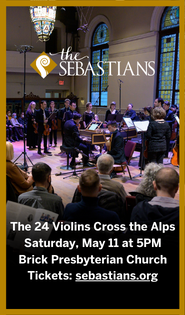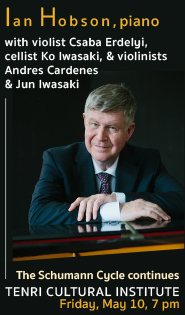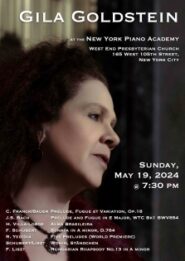At Carnegie opening, Mussorgsky gets lost in translation with Muti, CSO

“At” or “from”? That was the burning question that emerged Wednesday as the Chicago Symphony Orchestra, led by its recently retired music director Riccardo Muti, opened the Carnegie Hall season with performances where the most remarkable thing was the title of one of the pieces.
If you’ve been calling that Mussorgsky piece Pictures at an Exhibition your whole life, the CSO—and also The New Grove, the 27-volume, U.K.-published music reference work—have news for you. As Phillip Huscher, the orchestra’s longtime program annotator, tells it, “Pictures from an Exhibition is a more accurate translation of Mussorgsky’s original title in Russian, Kartinki s vistavki.”
That tidbit shouldn’t cost anyone sleep except music reviewers and their editors, and maybe students of American and British usage. However, Wednesday’s performance of Ravel’s spectacular orchestration of Mussorgsky’s piano work seemed itself to lose something in translation.
Paired with Tchaikovsky’s Violin Concerto in a blessedly intermission-less concert—a gala dinner awaited the lucky few afterward, and the rest of us caught early trains home—Mussorgsky’s piquant character pieces seemed at times squeezed into ill-fitting orchestral clothes.
When “symphony” is one’s middle name, there may be a default setting where music as chaotic as “Ballet of the Chicks in their Shells”—a tangle of beaks and claws interrupted by an ear-splitting clarinet squawk—is smoothed into a charming symphonic scherzo.
“Samuel Goldenberg and Schmuyle” accurately rendered the score, but forgot to color in the contrasting portraits of the pompous rich man and the wheedling beggar. On the other hand, while the Orientalism of the sinuous saxophone and cushiony strings in “The Old Castle” may not have been exactly what the Russian composer had in mind, at least it had character.
In general, despite its brilliance and precision—and star turns for the Chicagoans’ rich-toned brass section–this performance showed signs of being whipped up for the gala rather than really investigated imaginatively for the music. (Unlike the Tchaikovsky concerto, this piece does not show up elsewhere in the current three weeks of CSO concerts in Chicago and New York with Muti.)
In contrast, the poised and brilliant violinist Leonidas Kavakos recently partnered with Muti in Tchaikovsky’s concerto before bringing it to Carnegie. This made for a well-oiled collaboration, if not a particularly daring one. The soloist played with pinpoint intonation even in the most gnarly passages, admirably flowing but not glib, taking care to illuminate each theme and incident in the long first movement.
At first he was not clearly audible in the large hall, but he adjusted quickly, and the balances between his violin and Tchaikovsky’s delicate woodwind accompaniments featured him effortlessly. Although one expects some dynamic difference between violin solos and passages for the full orchestra, Muti went a bit overboard with colossal tutti that seemed to come out of left field, or maybe from the planet Symphony.
The violinist’s stand-and-deliver performing style softened in the Canzonetta movement, allowing him to sway a little as he spun out the songful line and passed it to the orchestra’s flute and clarinet. His tone swelled and softened as well, matching the muted strings of the accompaniment.
The finale’s marking, Allegro vivacissimo (lively to the max) refers more to character than to speed, but Kavakos and the orchestra managed both, taking off lickety-split and exchanging rapid-fire dialogue along the way. The audience came to hear virtuosity of the solo and the orchestral kind, and these players delivered, teasing with a held-back second theme that made the subsequent fireworks and still-faster coda all the more exhilarating.
The Chicago Symphony Orchestra, conducted by Riccardo Muti, will perform works by Glass, Mendelssohn and Richard Strauss 8 p.m. Thursday at Carnegie Hall. carnegiehall.org







Posted Oct 06, 2023 at 10:32 pm by Zev Barden
With all due respect, I believe that to have these opinions, you must have gone to this performance looking for things to dislike.
The CSO played at the highest level on Wednesday. With mistakes? Absolutely. But this does not change the fact that they moved everyone in the hall that evening. A brass playing friend of mine (who has seen many of the major Northeastern orchestras multiple times) turned to me after the Tchaikovsky and said “this is the best orchestra in the world”. And many of the people in the balcony were moved to tears of joy and awe by the monstrously powerful ending to Pictures.
The musicians of the Chicago Symphony live for their orchestra in a way that few others do, and it is apparent in every performance. They captivate audiences with the same level of incredibly intense playing that catapulted them to fame fifty years ago, and I believe they absolutely did so with their performance that night.
It is okay for an interpretation to challenge your preconceptions of what the piece should be. Muti’s slower than normal final movements certainly did for me. But I would struggle to believe that anyone left that performance wanting more from those incredible players. Different… maybe, but not more.